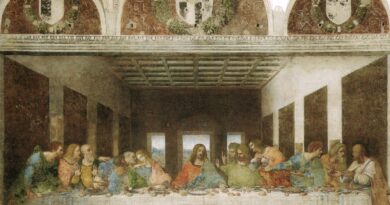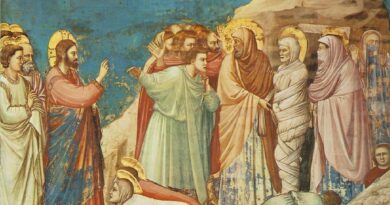Fifth Sunday of Lent/C
Massimo Palombella

Today’s Gospel (John 8, 1-11) narrates the encounter between the scribes, the Pharisees, the woman caught in adultery and Jesus. Each of us can identify simultaneously with those who accuse and want to stone, and with the sinful woman. In fact, we often find ourselves overwhelmed by our own weakness with the deep need to hear Jesus’ words: “Neither do I condemn you” capable of going beyond all our unhealthy guilt. But, at the same time, we can recognise ourselves in those who accuse and want to eliminate everything that, fundamentally, they do not accept about themselves, everything that leads them back to their weakness. When we do not accept something about ourselves, we risk becoming violent in relationships, using our intelligence to find external reasons to justify our actions.
The Lord gently, without violence, leads us to our weakness, to our limitation, to our “failure”, saying “I do not condemn you either”, and slowly taking us beyond those deep-rooted cultural and educational patterns that often imprison us in small and distorted understandings of reality and of ourselves.
The Tract of today’s celebration is taken from Sam 128 (Ps 128:1-4) with the following text:
Saepe expugnaverunt me a iuventute mea.
Dicat nunc Israel: saepe expugnaverunt me a iuventute mea.
Etenim non potuerunt mihi: supra dorsum meum fabricaverunt peccatores.
Prolongaverunt iniquitatem sibi: Dominus iustus concidet cervices peccatorum.
(Often have they fought against me from my youth.
Let Israel now say: often have they fought against me from my youth.
Yet, they have not prevailed against me: my back has become an anvil for the hammering of sinners, they have long oppressed me with their iniquities.
But the Lord of justice will break the neck of sinners).
The attached music, in Gregorian Chant, is taken from the Gradual Triplex published in Solesmes in 1979. The interpretation is by the ‘Choralschola der Wiener Hofburgkapelle’ conducted by Hubert Dopf. The music track can be found on the CD ‘Gregorian Chant for the Church Year’ published by Universal International Music B.V. in 1997.
A blessed Sunday and heartfelt greetings.


